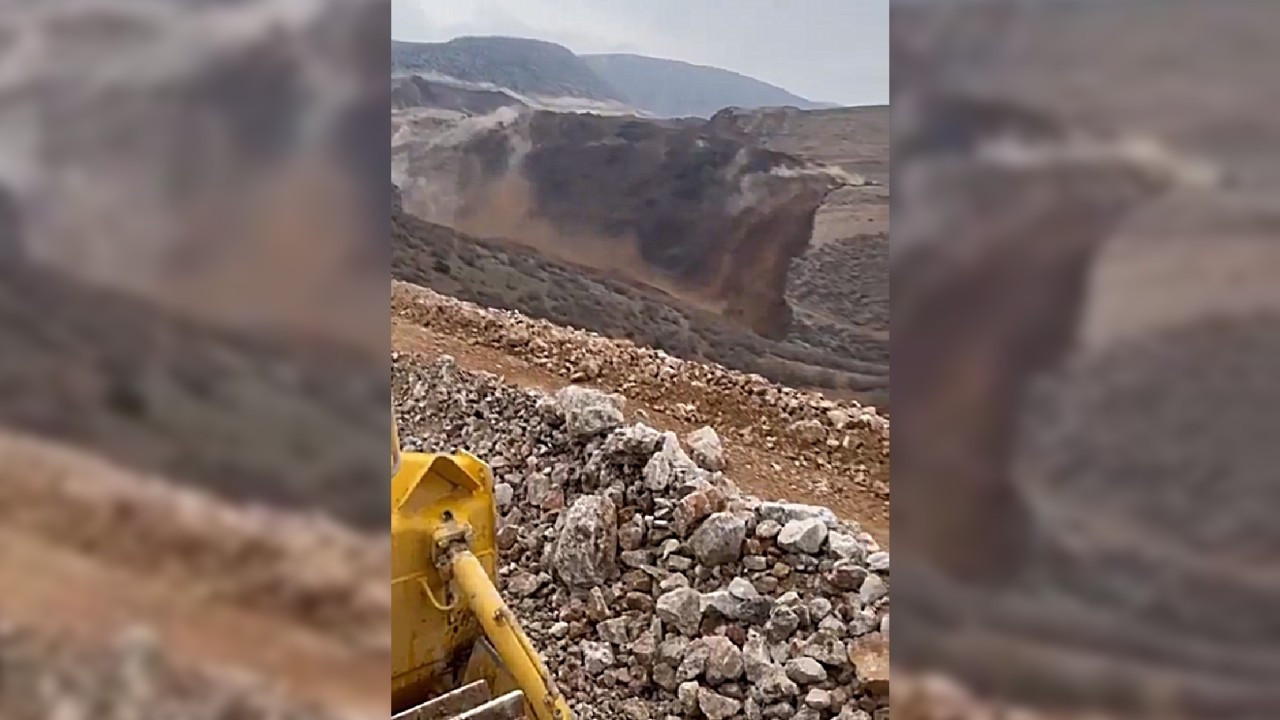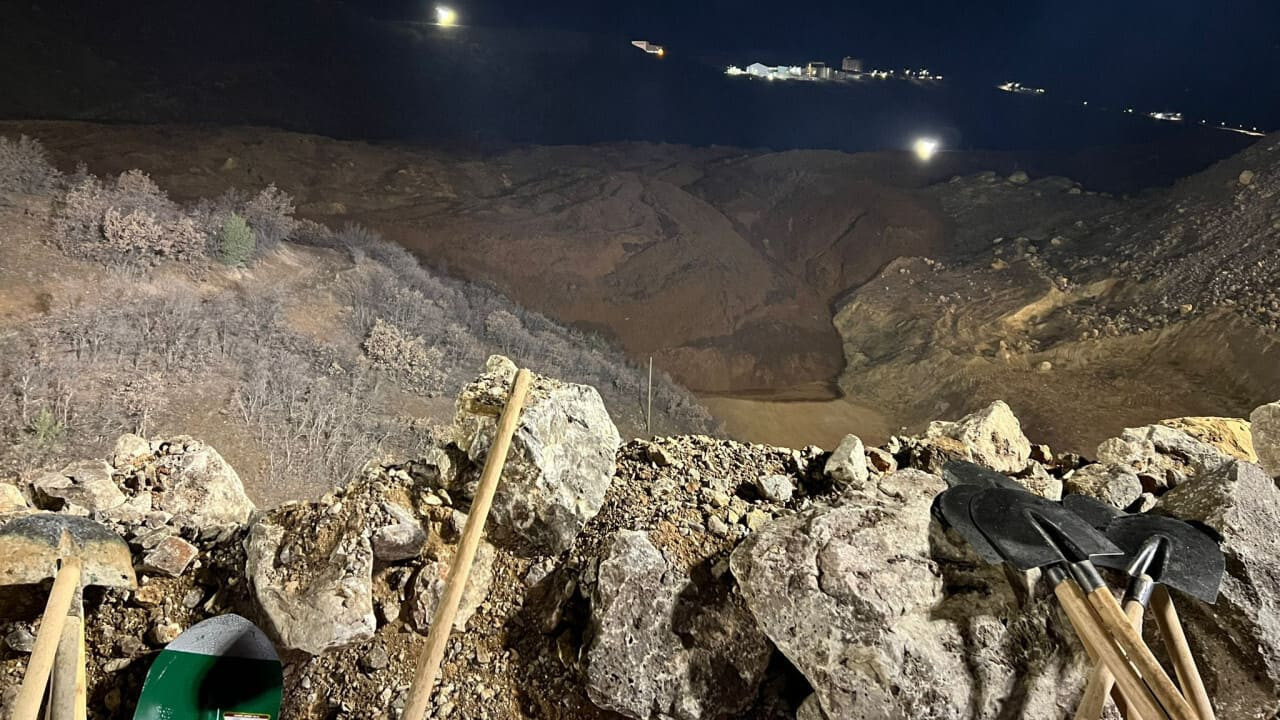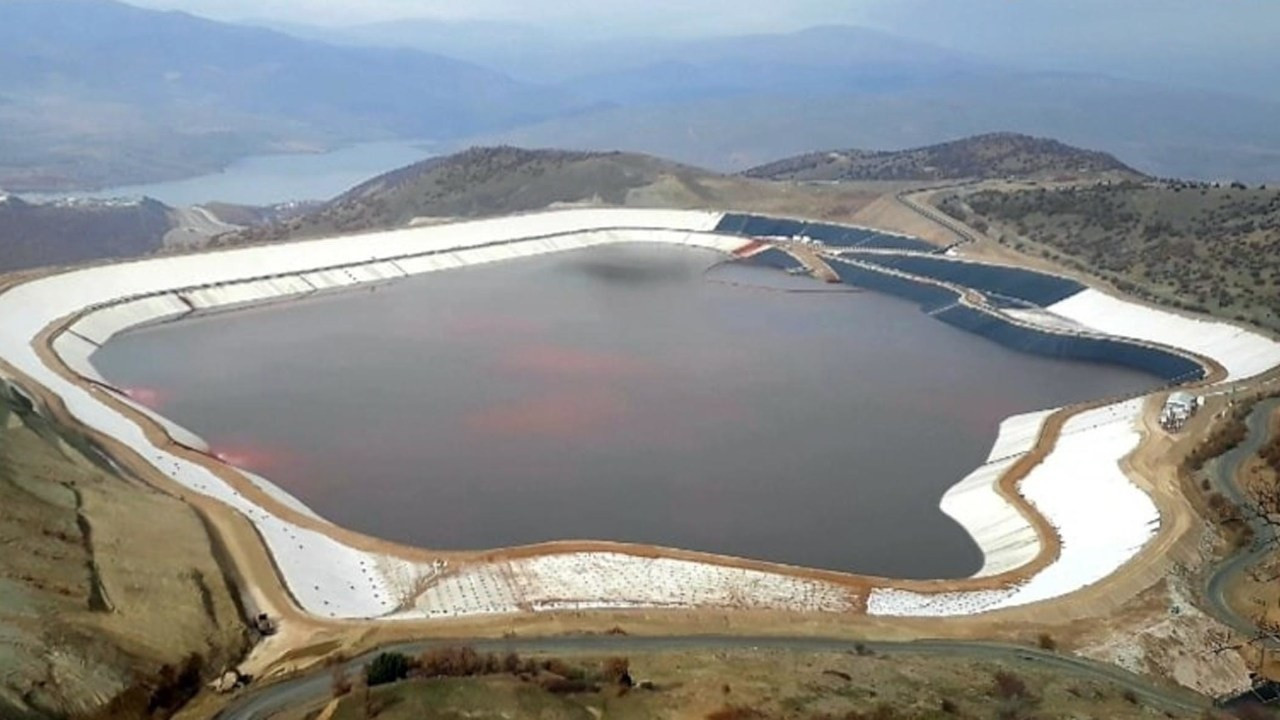No cyanide flow into Euphrates River after mine disaster in Turkey, ministry and firm claim
After the landslide disaster at Çöpler gold mine in Turkey’s eastern Erzincan, Turkish Environment Ministry said they have detected no pollution in the Euphrates River so far. Anagold Mining Company, owner of the gold mine, also claimed that there was no contamination in the region and no cyanide flow into the river.
Duvar English
After the landslide disaster at a gold mine in Turkey’s eastern Erzincan province, worries about the cyanide leakage from the mine and its expansion to the region and to the Euphrates River has been increasing.
On Feb. 13, the landslide at Çöpler gold mine, operated by Anagold Mining Company, trapped at least nine workers, leading to cyanide leakage from a mountain where the company had been storing cyanide waste in Erzincan’s İliç district.
In a statement on Feb. 14, The Environment, Urbanisation and Climate Change Ministry said they detected no pollution in the samples gathered from the Euphrates River.
Erzincan’ın İliç İlçesinde Yaşanan Maden Kazasına İlişkin Basın Açıklaması pic.twitter.com/UjAEABPI3p
— T.C. Çevre, Şehircilik ve İklim Dğş. Bakanlığı (@csbgovtr) February 14, 2024
The ministry said the covers of the culvert where Sabırlı Stream reaches the Euphrates River were closed as a first precaution in order to prevent the Euphrates River from being impacted.
“A sealed water collection pool was built to collect runoff water that may occur due to rain and similar reasons,” the ministry added.
On the other hand, Anagold Mining Company, the owner of the Çöpler gold mine, also claimed that there was no cyanide flow into the Euphrates River and there was no environmental pollution due to the landslide.
The company said the accident occurred due to slippage of the heap leaching area.
“The emergency plan was activated as soon as the incident occurred, rescue operations were started immediately and are still continuing. There was no environmental pollution due to the landslide, but all necessary precautions were taken quickly and the site was brought under control,” it added.
Anagold Mining, 80 percent owned by the Canadian SSR Mining and 20 percent by the Çalık Group close to the Turkish government, has been operating in the region since 2009. The mining project received a positive Environmental Impact Assessment (ÇED) report in 2008.
The company and the ministry have been heavily criticized after the incident, as experts and opposition were warning about the dangers of the mine.
In June 2022, a pipe containing cyanide also burst in the mine, leading to the discharge of waste into the Euphrates River. However, the mine site was approved to be expanded by the ministry after the leakage.

 Landslide at gold mine traps workers, exposes cyanide in eastern TurkeyDomestic
Landslide at gold mine traps workers, exposes cyanide in eastern TurkeyDomestic Turkish government repeatedly authorizes capacity expansion to mine leaked cyanideEnvironment
Turkish government repeatedly authorizes capacity expansion to mine leaked cyanideEnvironment Gold mine operator confirms cyanide spill claimsEnvironment
Gold mine operator confirms cyanide spill claimsEnvironment